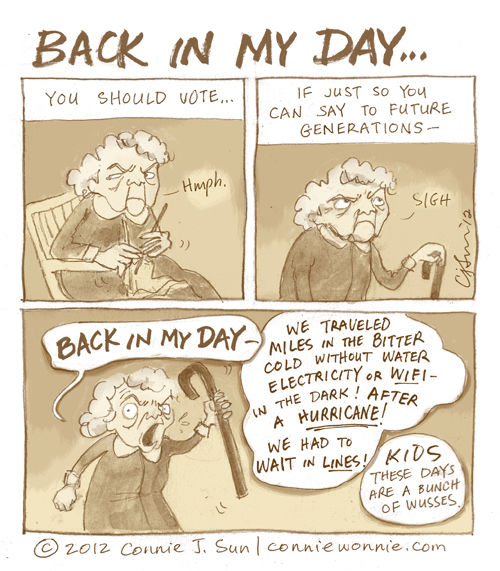Nostalgia Never Belonged to the Past
- Richy Srirachanikorn

- Jul 24, 2025
- 3 min read
Updated: Sep 19, 2025

What if nostalgia actually belongs not to the past, but to the future? I’m not talking about fashion trends or analogue media, but the whole notion of how we think about nostalgia.
This is an odd statement to make, but it is not uncharacteristic of nostalgia as a concept. When we yearn for the ‘simpler times’, how difficult is it to explain to others where and when this period of time existed?
We do not have to look further than the call to Make America Great Again. Reagan first used the phrase in 1980, but has Trump ever clarified in 2016, 2020, or 2024 – what era he believes America was great? Similarly, when Poilievre was running for Prime Minister, he echoed Trump’s nostalgic calls for a better past, because, apparently, everything is broken.
Contrary to popular belief, nostalgia is not reactionary and simple. Last year, CBC Radio’s This is Montreal interviewed five Montrealers who reflected on their nostalgia for things that happened during the COVID-19 lockdowns. These Canadians are not alone, either. Although the pandemic took away much of what we cherished, it also gave us new things that we hadn’t really thought about before.
We gained a new appreciation of healthcare workers, and rang our support across balconies where we clapped or clanged our pots-and-pans. When work turned remote, we saw mass rehabilitation in the air quality of our cities. As we moved online, we reconnected with our friends and families again.
But three years into the ‘new normal’, we’ve lost those gains.
The quiet, cleanliness, and even freedom – to slouch in bed, to wander in one’s PJs, to binge selections from Netflix and UberEats – becomes a positive memory only because we cannot do this now. Life is too busy, too ‘normal’, again. Psychologists call this pandemic nostalgia, which is the search for lockdown moments that no longer exists today.
In this sense, being nostalgic for COVID does not mean yearning for the deaths, political unrest, and uncertainty. Pandemic nostalgia shows us that we can pick and choose what to yearn for – to take the apples, and not the entire tree. Nostalgia is not as passive as it may seem; we have more agency in how we nostalgize.
So, how exactly does nostalgia “belong to the future”?
Firstly, nostalgia is an indication of what we want in the future.
Those pandemic days may not have been positive when we experienced them. But only when we realize that we miss these activities, do they appear to be something ‘better’ and ‘simpler’ than the present. What we are nostalgic for indicates what we desire. As Joni Mitchell sang, “You don’t know what you've got till it’s gone”.
Secondly, nostalgia can influence the future of a country.
Trump’s call to Make America Great Again does not point to a time in the past. In 2024, his son claimed that “somewhere along the way, we lost ourselves”, likening the America that his supporters grew up in to, an “old photograph”. This disregards the past that his supporters lived through, and replaces it with the idea that the past is blurry and unrecognizable. To satisfy this nostalgia, his supporters could not rely on their memory; they had to vote in the present, in the name of the past. Arguably, these nostalgic actions ensured Trump’s future in the White House.
Three: nostalgia can bring about new experiences and communities.
Montreal is rife with nostalgia. Since 1980, the Festival International de Jazz de Montreal has celebrated musicians and music-lovers across generations and countries. Thrift stores like Eva B. that houses all-things 90s, and Cyber Vintage, that speaks to the 2000s, are ‘third spaces’ that allow people to exchange their stories of the past. These Montreal institutions have generated forward-focused inspiration, friendships, and community.
Ultimately, what we do in the name of nostalgia impacts the present and the future.
These examples show us that revisiting the past does not mean being ‘passive’, ‘static’, or ‘regressive’ – frankly, these terms are old fashioned for describing nostalgia as we understand it today.
This is the English version of an article I wrote for Le Devoir. Find it here.

Comments